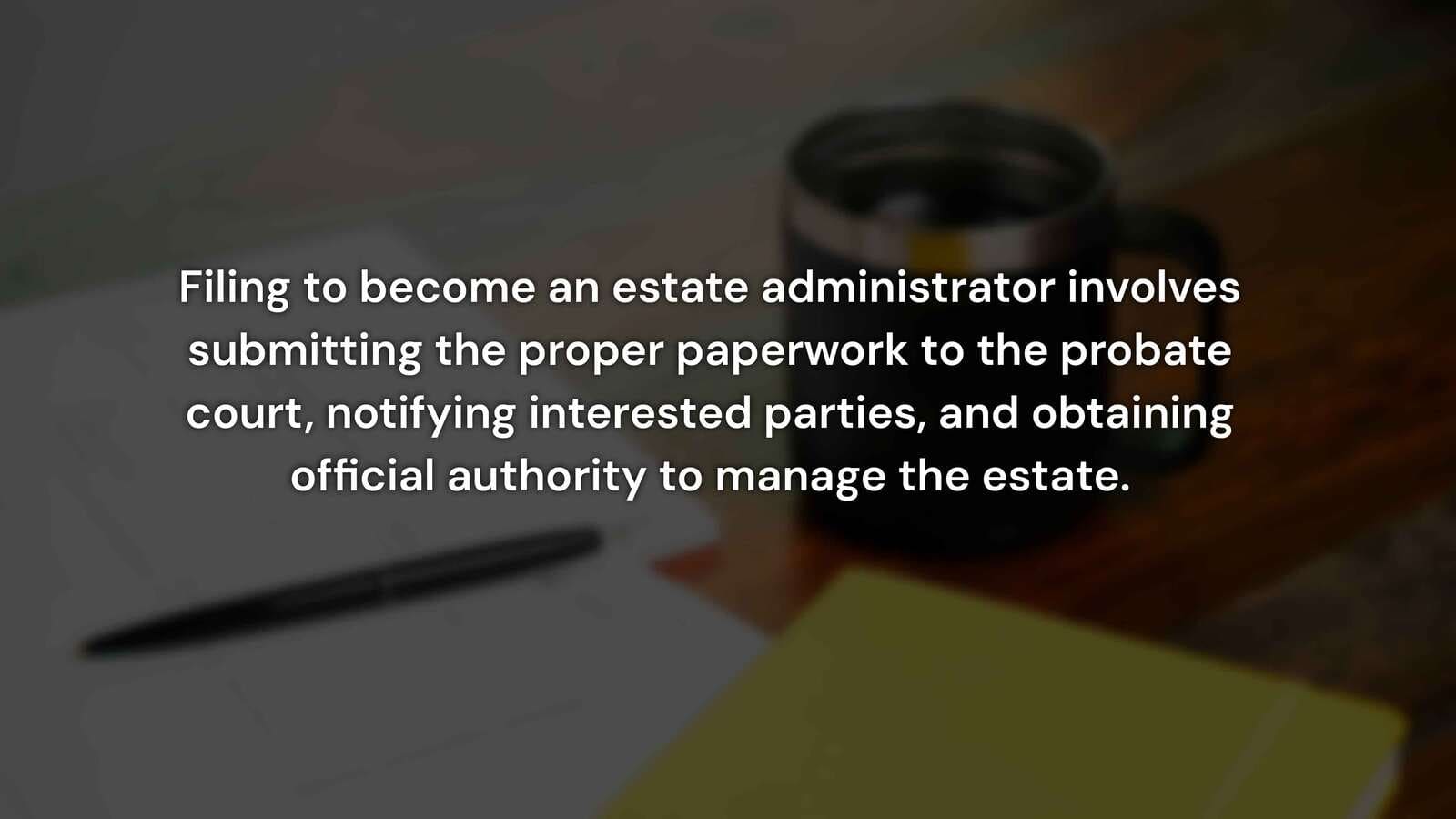Filing to become an estate administrator involves submitting the proper paperwork to the probate court, notifying interested parties, and obtaining official authority to manage the estate. The process is formal and varies by state, but it always requires court approval before you can act on behalf of the deceased person’s estate.Step 1: Confirm the Need for an Administrator
An administrator is needed when there is no valid will naming an executor, or when the named executor cannot or will not serve. In these cases, the probate court appoints an administrator to handle estate affairs according to state intestacy laws.
Typical priority for appointment includes:
- Surviving spouse or domestic partner
- Adult children
- Other close relatives
- A neutral third party if no qualified relatives are available

Step 2: Obtain and Complete the Petition Forms
The process begins by completing the court’s petition for letters of administration. This document generally requires:
- The deceased’s full name, date of death, and last residence
- An estimate of the estate’s value
- A list of known heirs and their contact information
- A statement of your relationship to the deceased and why you should be appointed
- Forms can usually be obtained from the probate court’s website or in person at the clerk’s office.
Step 3: File the Petition With the Probate Court
Once completed, the petition must be filed with the appropriate probate court, along with the required filing fee. The court will schedule a hearing to review the petition and determine whether to grant your request.
Step 4: Notify Interested Parties
You must notify all heirs, potential beneficiaries, and creditors of your petition. Notification methods vary by jurisdiction and may include certified mail, personal service, or publication in a local newspaper. This gives others the opportunity to support or object to your appointment.
Step 5: Attend the Court Hearing
At the hearing, the judge will review your petition, hear any objections, and determine if you meet the legal requirements to serve. You may need to present identification, proof of relationship to the deceased, and evidence of your capability to manage the estate.
Step 6: Take an Oath of Office
If approved, you will take an oath to faithfully perform your duties as administrator. This oath emphasizes your fiduciary duty to act in the best interests of the estate and its beneficiaries.
Step 7: Post a Bond (If Required)
Many states require administrators to post a bond as a safeguard against mismanagement or misconduct. The amount is based on the estimated value of the estate. In some cases, the bond can be waived if all heirs agree or if the court finds it unnecessary.
Step 8: Receive Letters of Administration
Once all requirements are met, the court issues letters of administration. These documents grant you legal authority to collect assets, pay debts, and distribute property according to state law.

Step 9: Begin Administering the Estate
With your legal authority established, you can begin:
- Gathering and securing estate assets
- Notifying and paying creditors
- Managing property and investments
- Preparing inventories and reports for the court
- Distributing remaining assets to heirs
Why Legal Guidance Is Essential
Navigating the filing process can be complicated, especially if disputes arise or the estate includes complex assets. Working with an experienced estate planning attorney ensures you meet all requirements and avoid costly mistakes.
Related Guidance on Estate Administration
Can an Administrator of an Estate Take Everything?
No—administrators must follow legal rules and cannot claim assets beyond their lawful share.
How to Become Administrator of Estate
The process involves meeting eligibility requirements, filing the proper petition, and obtaining court approval.
Can an Administrator of an Estate Be a Beneficiary?
Yes, but they must act impartially and follow the court’s instructions.
What Does the Administrator of an Estate Do?
Their role includes collecting assets, paying debts, resolving disputes, and distributing property according to law.











